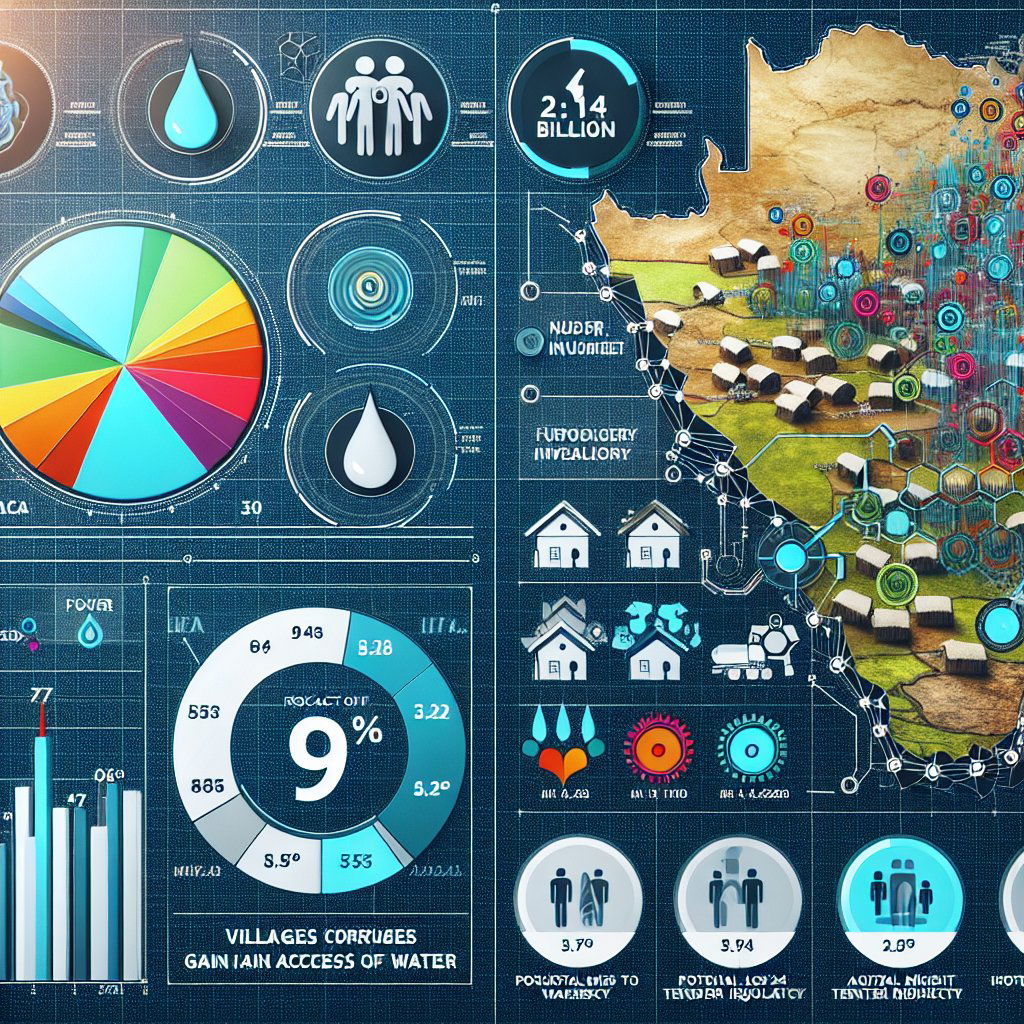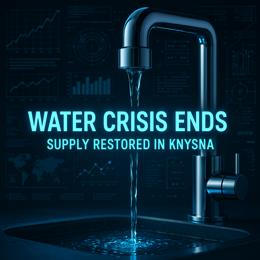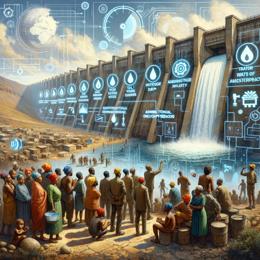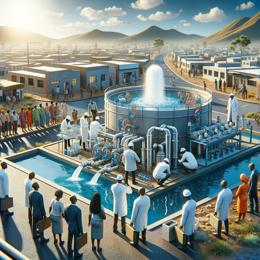Image created by AI
Giyani Water Project Promises Unfulfilled: Residents Await Access Amid Delays and Corruption Claims
In a striking revelation that highlights ongoing access issues, Deputy President Paul Mashatile has confirmed that a mere nine out of 55 villages in Giyani, Limpopo province, currently receive water from the embattled Giyani Water Project. Despite an estimated R4-billion investment, the program has failed to meet its primary goal of supplying water to the area since its inception in 2014.
During a recent visit with the Minister of Water and Sanitation, Mashatile, who also chairs the special task team on national water challenges, acknowledged the need for urgency in completing the project, initially slated for completion in 2017. However, unforeseen delays due to alleged fraud and mismanagement have left many villagers without reliable water sources to date.
The Giyani Water Project's troubled past saw the Special Investigating Unit lodging a liability claim against three former Lepelle Northern Water board executives, aiming to recover a R1.9-billion loss attributable to tender irregularities. The SIU's investigation brought to light that the project's procurement process was wrought with discrepancies, prompting legal action to deem the original contract as unconstitutional.
Despite ongoing inquiries into fraud allegations and concerns surrounding water diversion by local farming entities, the government has expressed its commitment to move forward. Minister Majodina has voiced the necessity of ensuring that residents receive water while the legal processes unfold.
Attuned to such commitment, Deputy President Mashatile assured the public of an escalated pace, projecting that an additional 24 villages might gain access to water by November. A permanent presence of two water department officials in Giyani has been established to closely monitor the progress of the project.
Yet, skepticism pervades among the villagers. Residents from communities like Matsotsosela openly question the impact of governmental visits on the actual resolution of their water scarcity woes. They recount reliance on costly purchased water or resorting to potentially unsafe river sources due to the inconsistent water supply.
Testimonials from inhabitants of Nhwakhuwani village, albeit now with access, emphasize the erratic nature of the water provision. The newfound supply is still deemed unreliable, leading villagers to maintaining reserves for unexpected shortages.
As developments continue to unfold, the Giyani Water Project stands as a somber testament to the dire needs of rural communities grappling with basic resource accessibility, and the complex interplay of governance, accountability, and service delivery.










